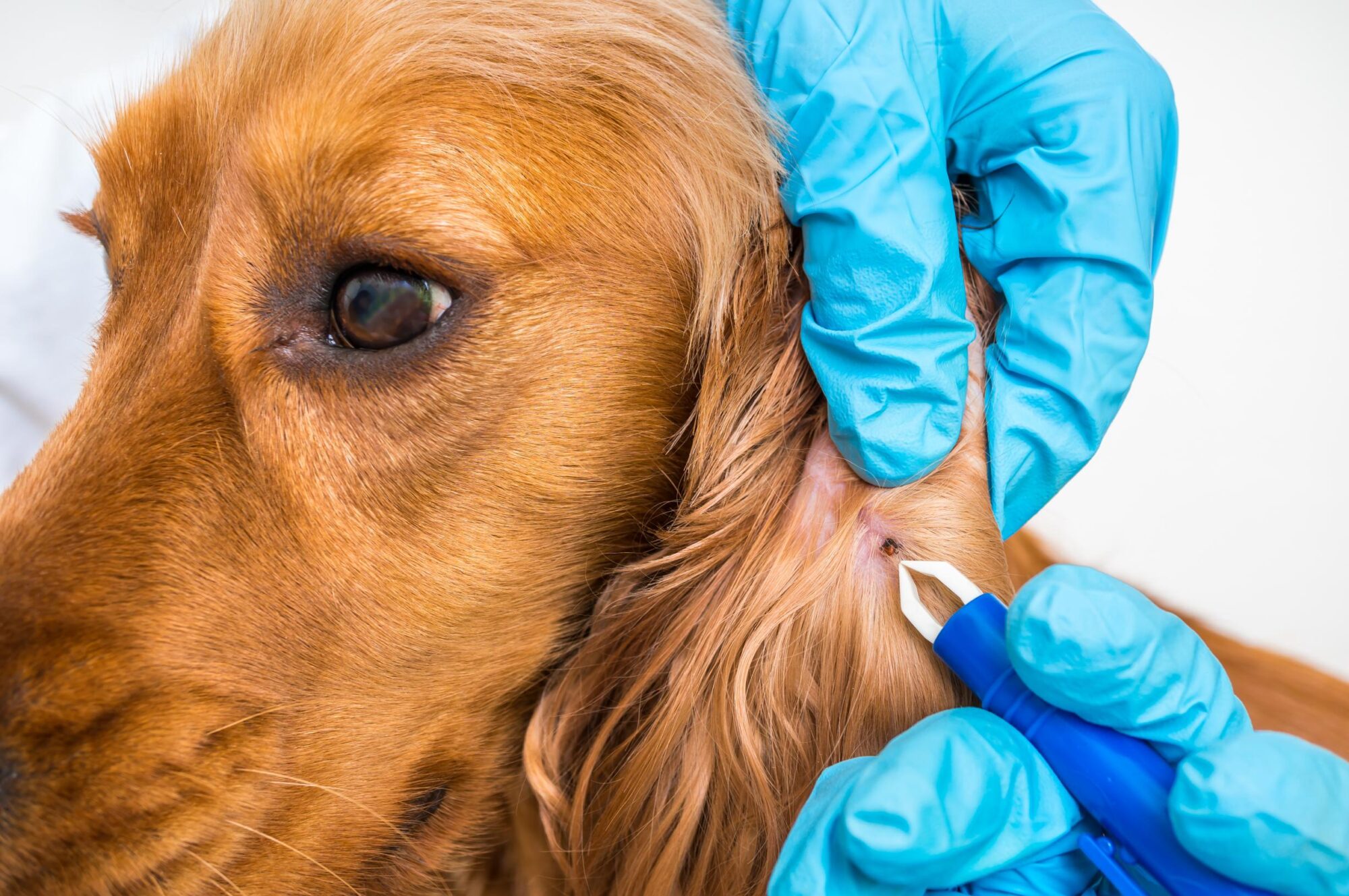Blog
A Dog Owner’s Guide to Year-Round Brown Ticks in Florida

Ticks are a year-round threat to pet health in the Sunshine State with an increase in activity during spring and summer due to newly hatched nymphs looking for their first blood meals. Nymphs can be much harder because they are so small.
There are numerous tick species seen in Florida, including:
- American dog tick
- Lone star tick
- Gulf coast tick
- Black-legged tick
The brown dog tick has the potential to infest areas rather quickly. If your dog or cat visits places frequented by lots of other animals (like dog parks, kennels, backyard with frequent wildlife, etc.), they may be at higher risk of picking up one or more ticks.
Prevention is the Best Medicine
Part of our approach to overall pet wellness, includes year-round medication to prevent parasites for both canine and feline patients. While over the counter medications are available, the efficacy is poor. Prescription medications such as NexGard™/HeartGard™, Simparica Trio™, Revolution Plus™, Credelio™, etc. do a great job of reducing the spread of tick-borne illness, while also addressing health problems associated to fleas and mosquitos. These medications require a current doctor-patient relationship in order to be prescribed.
What Pet Owners Can Do
As pet owners we should inspect our pets frequently for ticks and other parasites. Ticks latch onto the head, ears, neck, back, abdomen, and between the toes. Your pet may pick one up while out walking or simply patrolling their own backyard. Without regular checks, cats and dogs become susceptible to various tick-related health problems. Other household pets and family members may be at increased risk of ticks attaching to them and spreading disease.
Quick removal of ticks is ideal for preventing disease. Strong tweezers are required to ensure that the tick’s head remains attached to their body instead of getting stuck inside their host. Additionally, specialty tools exist for removing ticks. Apply first aid to the site of attachment. Always feel free to contact us if you need help removing the tick and addressing the wound.
In addition to inspecting pets for ticks, consider taking these other precautions:
- Keep long grass trimmed and remove brush piles from your property to reduce habitat for known tick hosts, such as rodents
- Install garden plants known to repel ticks, such as catnip, rosemary, lemongrass, mint, and lavender
- Use pet safe insecticides to manage ticks and other parasites
- Wash pet bedding and vacuum frequently
Tick-borne Diseases for Dogs
Ticks infect canine hosts with several pathogens that can lead to diseases like Ehrlichiosis, canine babesiosis, Lyme disease, and Rocky Mountain spotted fever. Similarly, the longer they stay attached, the more likely you’ll see rashes, other bacterial infections and chronic conditions.
If you have further questions about the ways to protect your pet from ticks and tick-borne illness, please give us a call at (407) 831‑5205. Our staff is always here to help at South Seminole Animal Hospital.
